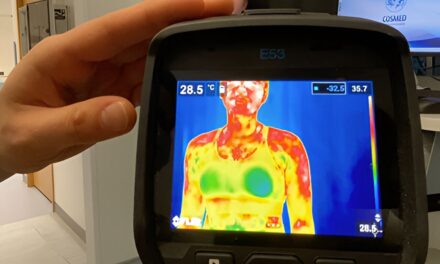In a breakthrough proof-of-concept study, replacing meat with plant-based proteins for just one meal has shown a significant reduction in ammonia levels among patients suffering from cirrhosis, a study published in Clinical and Translational Gastroenterology reveals.
Dr. Jasmohan Bajaj, a leading gastroenterologist at Virginia Commonwealth University School of Medicine, along with colleagues, conducted the study. They highlighted the critical association between high serum ammonia levels and adverse outcomes, such as hepatic encephalopathy (HE), in cirrhosis patients. Previous research indicated that diets rich in vegetable proteins are linked with decreased serum ammonia, offering potential benefits for these patients.
However, Dr. Bajaj emphasized the challenge of transitioning individuals from meat-based to plant-based diets, especially considering lifelong dietary habits. He noted that expecting patients to adopt a completely vegetarian or meatless diet is often unsustainable in the long term. Hence, the study aimed to explore the efficacy of occasional meal substitutions as a more feasible approach.
The randomized study involved 30 male cirrhosis patients on a traditional Western meat-based diet. Participants were divided into three groups, each receiving a different meal option: a pork/beef burger, a vegetarian bean burger, or a burger made from a vegan meat substitute. All meals provided 20 grams of protein and were accompanied by low-fat potato chips, a whole-grain bun, water, and no condiments.
Analysis revealed that serum ammonia levels increased after consumption of meat-based meals but remained stable after consuming vegetarian or vegan alternatives. Additionally, beneficial changes in serum metabolomics were observed in participants consuming plant-based meals, particularly in branched-chain amino acid metabolism and urea cycle.
Dr. Bajaj highlighted the need for larger studies to evaluate the long-term impact of intermittent meat substitution with plant-based alternatives on liver health. He also emphasized the importance of personalized dietary interventions in collaboration with dietitians to ensure optimal nutrition for cirrhosis patients.
Commenting on the study, Dr. Nancy S. Reau from Rush Medical College expressed optimism about the findings. She underscored the importance of maintaining adequate protein and calorie intake in cirrhosis patients while acknowledging the potential benefits of small dietary changes in reducing the risk of hepatic encephalopathy.
The study, partly supported by various grants, including the ACG Clinical Research Award and VA Merit Review, has paved the way for further research into dietary interventions for liver disease management. Drs. Bajaj and Reau disclosed no conflicts of interest, underscoring the credibility of the study’s findings.












